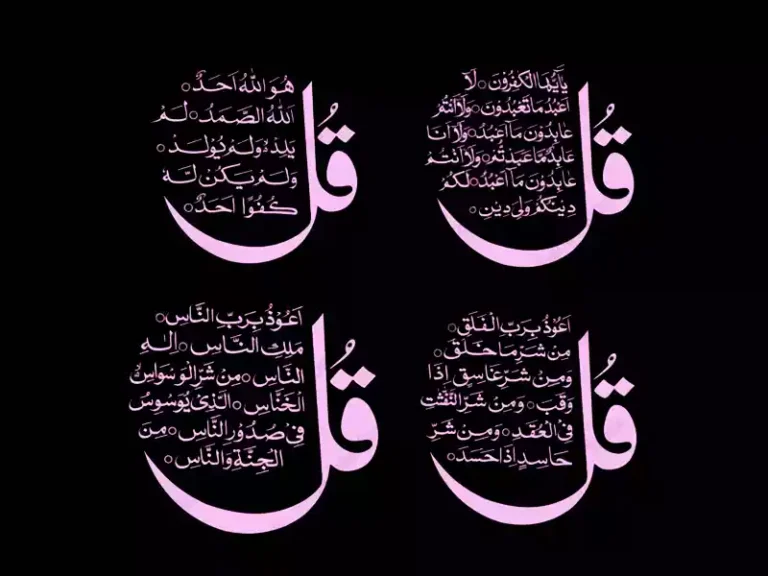Hasbunallahu Wa Ni’mal Wakeel: Your Ultimate Shield and Source of Strength
(حَسْبُنَا ٱللَّـهُ وَنِعْمَ ٱلْوَكِيلُ)
Hasbunallahu Wa Ni’mal Wakeel (حَسْبُنَا ٱللَّـهُ وَنِعْمَ ٱلْوَكِيلُ)
When you delve into the world of Islamic prayers (Dua), few phrases resonate with the power, reliance, and profound trust in Allah (SWT) as Hasbunallahu Wa Ni’mal Wakeel (حَسْبُنَا ٱللَّـهُ وَنِعْمَ ٱلْوَكِيلُ). This powerful declaration, deeply rooted in the Quran and Sunnah, serves as a comforting balm for the soul, a potent weapon against adversity, and an unwavering affirmation of Allah’s supreme authority and perfect guardianship.

As a seasoned content writer with two decades of experience exploring the depths of Islamic teachings, I’ve witnessed firsthand the transformative impact of this simple yet profound statement on the lives of countless individuals. It’s more than just words; it’s a state of being, a conscious surrender to the Almighty, and a recognition that in Him alone lies true sufficiency.
In this comprehensive guide, we will delve into the multifaceted meaning, the profound benefits, and the various ways to incorporate the recitation (Wazaif) of Hasbunallahu Wa Ni’mal Wakeel (حَسْبُنَا ٱللَّـهُ وَنِعْمَ ٱلْوَكِيلُ) into our daily lives. We will explore its significance through the lens of the Quran and Hadith, providing both English and Urdu translations to illuminate its beauty for a wider audience.
Unpacking the Meaning: A Linguistic and Spiritual Journey
At its core, Hasbunallahu Wa Ni’mal Wakeel (حَسْبُنَا ٱللَّـهُ وَنِعْمَ ٱلْوَكِيلُ) is an Arabic phrase that encapsulates a powerful message of reliance and trust. Let’s break down its individual components:
- Hasbuna (حَسْبُنَا): This word translates to “Sufficient for us” or “Allah is sufficient for us.” It signifies a complete reliance and contentment with Allah’s provision, protection, and decree. It’s an affirmation that we find our ultimate support and refuge in Him.
- Allahu (ٱللَّـهُ): This is the majestic name of Allah, the one and only God, the Creator and Sustainer of the universe. Invoking His name brings forth a sense of awe, reverence, and connection to the ultimate power.
- Wa (وَ): This is a conjunction meaning “and.”
- Ni’mal (نِعْمَ): This word signifies “the best,” “an excellent,” or “how excellent.” It’s an expression of praise and admiration.
- Al-Wakeel (ٱلْوَكِيلُ): This term refers to “the Trustee,” “the Guardian,” “the Disposer of Affairs,” or “the One in whom trust is placed.” It highlights Allah’s role as the perfect protector and the one who manages all affairs with infinite wisdom and justice.
Therefore, the complete translation of Hasbunallahu Wa Ni’mal Wakeel (حَسْبُنَا ٱللَّـهُ وَنِعْمَ ٱلْوَكِيلُ) in English is: “Sufficient for us is Allah, and [He is] the best Disposer of affairs.”
In Urdu (اردو), the translation is: “ہمیں اللہ ہی کافی ہے اور وہ بہترین کارساز ہے۔”
This seemingly simple phrase carries a profound spiritual weight. It’s a declaration of tawakkul (reliance on Allah), a cornerstone of Islamic faith. It signifies a complete surrender of our worries, anxieties, and fears to the Almighty, trusting in His wisdom and ability to handle all matters in the best possible way.
Scriptural Basis: Echoes in the Quran and Sunnah
The power and significance of Hasbunallahu Wa Ni’mal Wakeel (حَسْبُنَا ٱللَّـهُ وَنِعْمَ ٱلْوَكِيلُ) are firmly rooted in the sacred texts of Islam. Its most prominent mention is in the Holy Quran, in Surah Al-Imran (3:173):
ٱلَّذِينَ قَالَ لَهُمُ ٱلنَّاسُ إِنَّ ٱلنَّاسَ قَدْ جَمَعُوا۟ لَكُمْ فَٱخْشَوْهُمْ فَزَادَهُمْ إِيمَـٰنًا وَقَالُوا۟ حَسْبُنَا ٱللَّـهُ وَنِعْمَ ٱلْوَكِيلُ
(Translation in English): “Those to whom hypocrites said, ‘Indeed, the people have gathered against you, so fear them.’ But it [only] increased them in faith, and they said, ‘Sufficient1 for us is Allah, and [He is] the best Disposer of affairs.'”2
(اردو ترجمہ): “یہ وہ لوگ ہیں جن سے (بعض) لوگوں نے کہا کہ تمھارے مقابلے کے لیے لوگوں نے (بڑا) لشکر جمع کر لیا ہے سو تم ان سے ڈرو تو اس (بات) نے ان کے ایمان کو اور زیادہ کر دیا اور انھوں نے کہا کہ ہمیں اللہ کافی ہے اور وہ بہترین کارساز ہے۔”
This verse recounts a pivotal moment in early Islamic history, following the Battle of Uhud. The Muslims, having faced significant losses, were threatened by news of the enemy regrouping for another attack. In this moment of fear and uncertainty, their unwavering response was the powerful declaration of Hasbunallahu Wa Ni’mal Wakeel (حَسْبُنَا ٱللَّـهُ وَنِعْمَ ٱلْوَكِيلُ). This affirmation of their trust in Allah not only dispelled their fear but also strengthened their faith.
Furthermore, numerous narrations (Hadith) highlight the virtue and efficacy of this dua. While there isn’t a specific Hadith explicitly detailing the benefits of reciting it 1000 times, the general principle in Islamic teachings emphasizes the power of frequent remembrance (Dhikr) of Allah and sincere supplication. The more we turn to Allah with conviction, the more His blessings and assistance we draw.
Imam Bukhari (may Allah have mercy on him) narrated that Ibrahim (Abraham) عليه السلام said “حَسْبُنَا ٱللَّـهُ وَنِعْمَ ٱلْوَكِيلُ” when he was thrown into the fire. This highlights the dua’s association with seeking Allah’s protection in the face of seemingly insurmountable challenges.
These scriptural references underscore that Hasbunallahu Wa Ni’mal Wakeel (حَسْبُنَا ٱللَّـهُ وَنِعْمَ ٱلْوَكِيلُ) is not merely a phrase to be uttered in times of distress but a powerful affirmation of faith and reliance that has been the solace of prophets and the strength of believers throughout history.
The Multifaceted Benefits: A Shield and a Source of Strength
Reciting Hasbunallahu Wa Ni’mal Wakeel (حَسْبُنَا ٱللَّـهُ وَنِعْمَ ٱلْوَكِيلُ) with sincerity and understanding carries numerous benefits for both this life and the hereafter. These benefits can be broadly categorized as:
- Strengthening Faith and Reliance (Tawakkul): The very act of uttering this dua reinforces our belief in Allah’s omnipotence and our dependence on Him. It cultivates a deep sense of tawakkul, freeing us from the shackles of worry and anxiety. When we truly believe that Allah is sufficient for us, we approach life’s challenges with greater peace and fortitude.
- Seeking Allah’s Protection and Support: Just as the Muslims in Surah Al-Imran found solace and strength in this dua, reciting it in times of difficulty serves as a powerful means of seeking Allah’s protection and support. It’s a direct appeal to the Best of Guardians to intervene in our affairs and guide us through trials.
- Gaining Inner Peace and Tranquility: By entrusting our concerns to Allah, we liberate ourselves from the burden of carrying them alone. This act of surrender brings immense inner peace and tranquility. Knowing that our affairs are in the hands of the Most Merciful and Wise provides a sense of comfort that transcends worldly anxieties.
- Overcoming Fear and Adversity: The historical context of the Quranic verse reveals its efficacy in overcoming fear. When faced with threats or challenging situations, reciting Hasbunallahu Wa Ni’mal Wakeel (حَسْبُنَا ٱللَّـهُ وَنِعْمَ ٱلْوَكِيلُ) can instill courage and resilience in our hearts. It reminds us that no power can overcome Allah’s will and that He is our ultimate protector.
- Attaining Allah’s Pleasure and Rewards: Like any act of remembrance (Dhikr) and supplication (Dua), reciting Hasbunallahu Wa Ni’mal Wakeel (حَسْبُنَا ٱللَّـهُ وَنِعْمَ ٱلْوَكِيلُ) with sincerity earns us Allah’s pleasure and the rewards promised to those who remember Him often.
- Finding Solutions and Ease: By placing our trust in Allah, we open ourselves to His divine guidance and assistance. Often, solutions and ease come from unexpected avenues when we sincerely turn to Him with this powerful declaration.
- Developing a Positive Outlook: Regularly reciting this dua fosters a positive outlook on life. It trains our minds to focus on Allah’s sufficiency rather than dwelling on our limitations or the magnitude of our problems.
While there isn’t specific evidence in the Quran or Sunnah detailing the exact benefits of reciting Hasbunallahu Wa Ni’mal Wakeel (حَسْبُنَا ٱللَّـهُ وَنِعْمَ ٱلْوَكِيلُ) 1000 times, the general principle of increasing in Dhikr and Dua is highly encouraged. Consistent and sincere repetition, regardless of the exact number, can deepen our connection with Allah and amplify the aforementioned benefits.

Incorporating the Power: Wazaif and Practical Applications
There are various ways to incorporate the recitation (Wazaif) of Hasbunallahu Wa Ni’mal Wakeel (حَسْبُنَا ٱللَّـهُ وَنِعْمَ ٱلْوَكِيلُ) into our daily lives:
- Regular Dhikr: Make it a part of your daily remembrance of Allah, reciting it multiple times throughout the day, especially after prayers.
- Times of Difficulty: Turn to this dua in moments of hardship, anxiety, fear, or uncertainty. Recite it with conviction, knowing that Allah is your ultimate refuge.
- Seeking Resolution: When facing problems or seeking solutions, make this dua a constant companion. Entrust your affairs to Allah and witness His guidance.
- Protection from Harm: Recite it as a means of seeking Allah’s protection from evil, harm, and negative influences.
- Strengthening Faith: Regularly uttering these words reinforces your faith and deepens your reliance on Allah.
- Personalized Wazaif: Some individuals may choose to recite it a specific number of times (e.g., 100, 313, or even conceptually 1000, focusing on consistency and sincerity rather than a rigid number) as a personal form of supplication and seeking closeness to Allah. The key is sincerity, understanding the meaning, and having firm faith in Allah’s response.
It’s important to remember that the efficacy of any dua lies in the sincerity of the heart and the firmness of one’s belief in Allah. Simply uttering the words without understanding or conviction may not yield the desired results.
Beyond the Recitation: Living by its Principles
While the verbal recitation of Hasbunallahu Wa Ni’mal Wakeel (حَسْبُنَا ٱللَّـهُ وَنِعْمَ ٱلْوَكِيلُ) is powerful, its true impact is realized when we strive to live by its principles. This means:
- Having complete trust in Allah’s plan: Even when things don’t go our way, we trust that Allah’s plan is ultimately the best for us.
- Turning to Allah in all our affairs: We make Allah our primary point of reference in all our decisions and challenges.
- Striving our best and leaving the rest to Allah: We take the necessary steps and exert our efforts, but we ultimately rely on Allah for the outcome.
- Maintaining hope and patience: Even in the face of adversity, we maintain hope in Allah’s mercy and exercise patience.
Living by these principles, coupled with the regular recitation of this powerful dua, creates a life filled with peace, resilience, and a deep connection with the Almighty.
The Beauty of the Arabic Script and its Visual Representation
The Arabic script of Hasbunallahu Wa Ni’mal Wakeel (حَسْبُنَا ٱللَّـهُ وَنِعْمَ ٱلْوَكِيلُ) is visually captivating and carries a rich artistic heritage. Many Muslims choose to display arabic wallpaper hasbunallahu wa ni’mal wakeel in their homes and on their devices as a constant reminder of their reliance on Allah. These artistic representations serve not only as beautiful décor but also as a source of inspiration and a visual affirmation of faith.
conclusion:
In conclusion, Hasbunallahu Wa Ni’mal Wakeel (حَسْبُنَا ٱللَّـهُ وَنِعْمَ ٱلْوَكِيلُ) is more than just a phrase; it’s a powerful declaration of faith, reliance, and trust in Allah, deeply rooted in the Quran and Sunnah. Its recitation brings numerous spiritual and emotional benefits, offering solace in times of difficulty and strengthening our connection with the Almighty. By understanding its profound meaning, incorporating it into our daily lives, and striving to live by its principles, we can unlock its transformative power and find true sufficiency in Allah, the best Disposer of affairs. Let this powerful dua be our constant companion, our shield against adversity, and our unwavering affirmation that Allah alone is enough for us.
Addressing Common Queries: FAQs
To further enhance understanding, let’s address some frequently asked questions related to Hasbunallahu Wa Ni’mal Wakeel (حَسْبُنَا ٱللَّـهُ وَنِعْمَ ٱلْوَكِيلُ):
What does hasbunallahu wa ni’mal wakeel mean?
As explained earlier, it means: “Sufficient for us is Allah, and [He is] the best Disposer of affairs.”
What is the meaning of حَسْبُنَا ٱللَّـهُ وَنِعْمَ ٱلْوَكِيلُ in Arabic?
The Arabic text itself translates directly to the meaning provided above.
What is the hasbunallahu wa ni mal wakeel meaning in Hindi?
While the primary understanding comes from Arabic, a close Hindi translation would be: “हमारे लिए अल्लाह ही काफ़ी है, और वही सबसे अच्छा कार्यसाधक है।”
What are the hasbunallahu wa ni mal wakeel benefits?
The benefits include strengthening faith, seeking Allah’s protection, gaining inner peace, overcoming fear, attaining Allah’s pleasure, finding solutions, and developing a positive outlook.
What is the hasbunallahu wa ni mal wakeel urdu translation?
The Urdu translation is: “ہمیں اللہ کافی ہے اور وہ بہترین کارساز ہے۔”
What is the meaning of hasbunallahu wa ni mal wakeel ni mal maula wanikman nasir?
This is an extension of the original dua. Ni’mal Maula Wa Ni’man Naseer (نِعْمَ ٱلْمَوْلَىٰ وَنِعْمَ ٱلنَّصِيرُ) means “an excellent Protector and an excellent Helper.” So the combined phrase means: “Sufficient for us is Allah, and [He is] the best Disposer of affairs, an excellent Protector and an excellent Helper.” This emphasizes Allah’s role not only as the one we rely upon but also as our ultimate ally and supporter.
Is there a specific benefit to reciting hasbunallahu wa ni mal wakeel 1000 times?
While there isn’t a specific Hadith outlining the benefits of reciting it exactly 1000 times, the general principle in Islam encourages frequent Dhikr and sincere Dua. Consistent and heartfelt repetition, regardless of a specific number, can deepen one’s connection with Allah and amplify the blessings and benefits of this powerful supplication. The focus should be on sincerity and understanding rather than a fixed number.
What about hasbunallahu wa ni mal wakeel meaning in Bengali?
In Bengali, it translates to: “আল্লাহই আমাদের জন্য যথেষ্ট, আর তিনিই সর্বোত্তম কর্মবিধায়ক।” (Allah-i amader jonno jothesto, ar tini sarbottomo kormobidhāyok.)







Thank you for your sharing. I am worried that I lack creative ideas. It is your article that makes me full of hope. Thank you. But, I have a question, can you help me?
Your point of view caught my eye and was very interesting. Thanks. I have a question for you.
Your article helped me a lot, is there any more related content? Thanks!
I don’t think the title of your article matches the content lol. Just kidding, mainly because I had some doubts after reading the article.